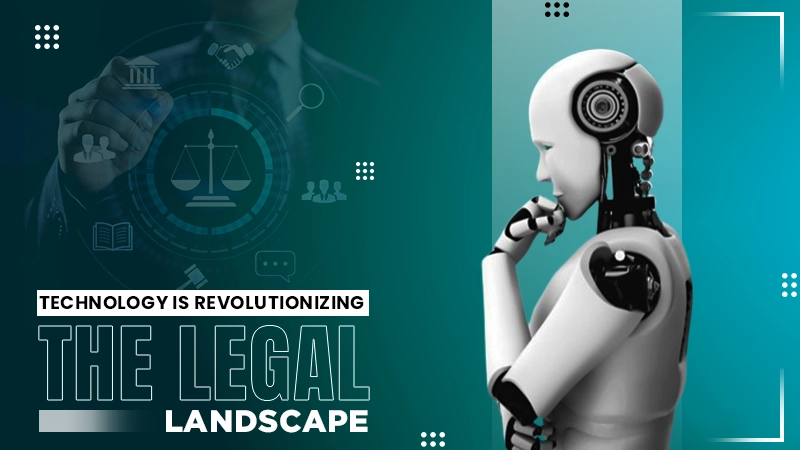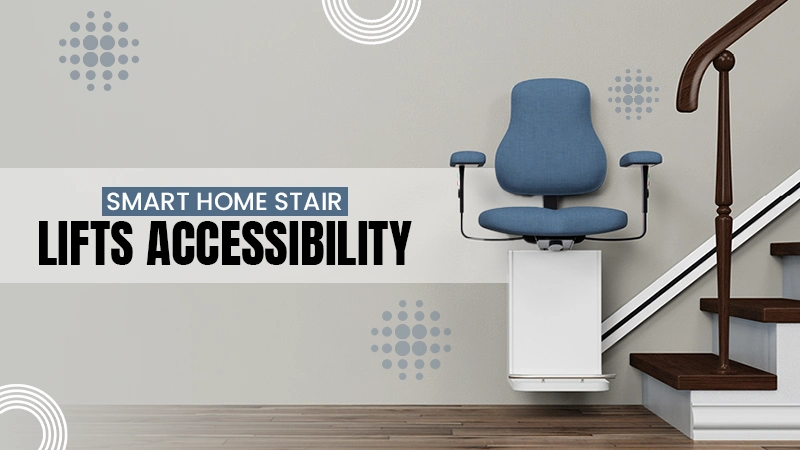Tech Solutions to Improve Efficiency in the Construction Industry
A wave of technological advancements is poised to transform the construction industry. From groundbreaking innovations in the Internet of Things (IoT) to the seamless integration of AI and machine learning, tech solutions are revolutionizing how projects are planned, executed, and completed efficiently.
Streamlined workflows, boosted productivity, and ultimately, an improved bottom line are all on the cards for firms that are open to adapting to new ways of working.
Here, we delve into four key tech solutions that can revolutionize your construction business.
The Internet of Things (IoT)
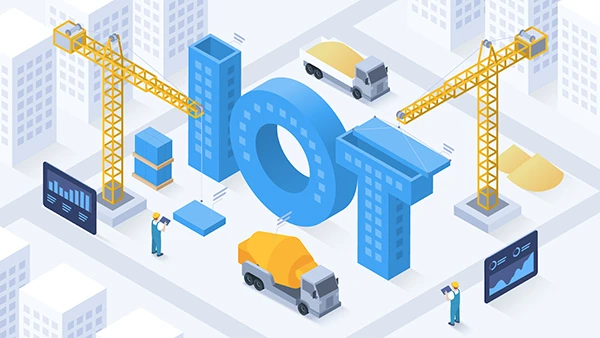
The Internet of Things has paved the way for interconnected devices and sensors on construction sites, allowing real-time monitoring and data collection. This technology enables project managers to make informed decisions promptly, enhancing overall efficiency.
Sensors embedded in tools and even the walls of what you’re building can track inventory levels, monitor equipment health, and even alert workers to potential hazards. That’s the power of IoT. This real-time data stream allows for proactive maintenance and prevents costly downtime while ensuring project deadlines are met.
For example, the Hong Kong Housing Authority (HKHA) has revolutionized and optimized the building of prefabricated properties designed for public rental. IoT solutions have sped up the verification process of fabrication, leading to more homes being built quickly and servicing a great need of the local population.
Upgraded Equipment
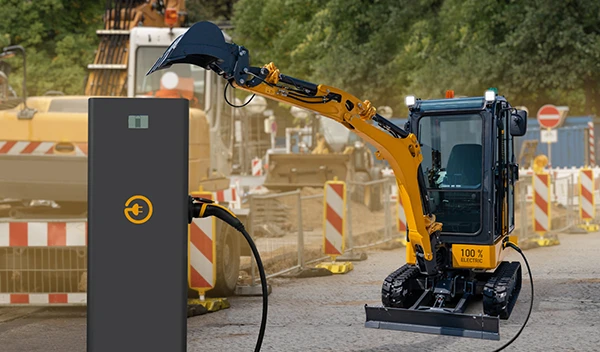
Modern construction equipment is a far cry from its clunky predecessors.
Today, we have intelligent machines equipped with advanced features designed to enhance accuracy and efficiency. Green laser levels project a bright line for precise levelling, even in bright sunlight, eliminating the need for manual adjustments and improving worker productivity.
Similarly, GPS-enabled excavators and bulldozers make light of intricate earthworks with pinpoint accuracy, minimizing timeframes, and material waste. Wearable technology is also revolutionizing the construction industry. Supervisors can now easily track progress, allocate resources effectively, and communicate instantly with team members.
AI & Machine Learning
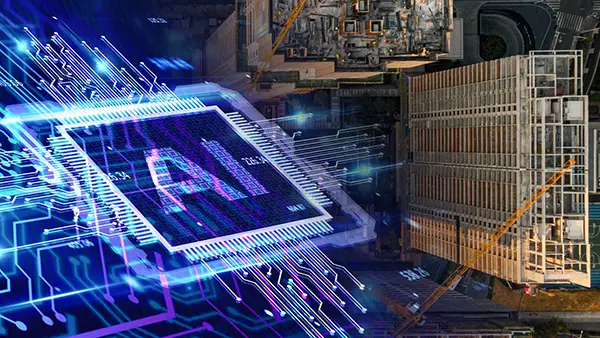
Artificial intelligence and machine learning are no longer a far-fetched idea of science fiction. These powerful tools are transforming project planning and execution in the construction industry.
AI can analyze vast amounts of data, can predict potential issues before they arise, allocate resources efficiently, and identify areas where cost savings can be made. Machine learning algorithms can analyze blueprints and identify potential clashes between different systems before construction even begins, saving time and money during the build phase.
The integration of AI and machine learning into the construction process is paving the way for more efficient project delivery while minimizing uncertainties that often plague large-scale construction projects.
Drones
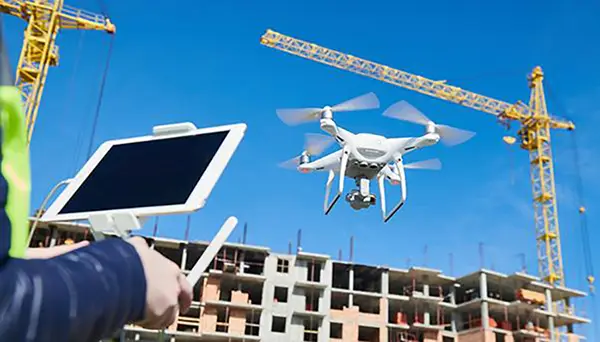
More than just toys, these versatile flying machines are increasingly used in construction. They can be deployed for rapid site surveys, generating detailed 3D models for improved planning and progress tracking.
Drones can also be used for inspections of hard-to-reach areas, reducing safety risks and the need for scaffolding. Moreover, drones streamline processes by accelerating surveying, mapping, and inspection tasks that would traditionally be time-consuming and labor-intensive.
Incorporating drone technology into construction projects not only improves safety measures but also boosts operational effectiveness. The seamless integration of drones ensures that projects stay on schedule and within budget constraints. As technology continues to advance rapidly, the utilization of drones in the construction industry is set to become more prevalent in shaping the future of the industry.
Augmented Reality (AR)
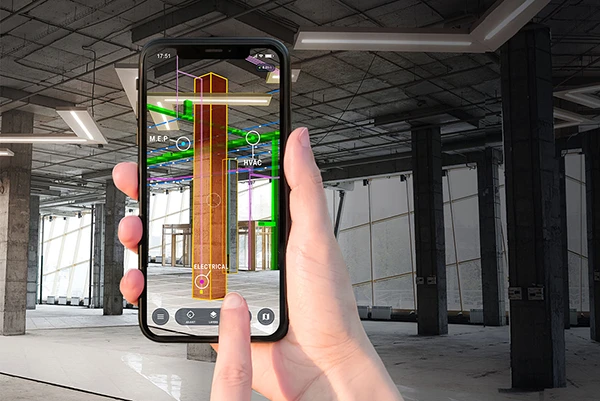
This cutting-edge innovation provides enhanced visualization and planning capabilities. Through AR-enabled devices, such as smart helmets or glasses, construction workers can view 3D models, blueprints, and step-by-step instructions overlaid onto the physical environment.
AR allows construction teams to conduct comprehensive quality checks and detect potential errors early in the construction process. This proactive approach helps minimize rework, avoids delays, and ensures that construction projects meet the highest standards of quality and safety.
In addition to on-site applications, AR technology facilitates remote monitoring and project management capabilities. The real-time visibility into project data enables proactive decision-making, resource allocation adjustments, and effective communication with stakeholders, regardless of their geographical location.
What Does the Future Hold?
The future of construction is brimming with exciting possibilities. Using 3D printing for on-site construction of components is already being explored, promising faster build times and reduced waste.
Robotics will play an increasingly significant role, with autonomous machines performing tasks like bricklaying and material handling, freeing up human workers for more complex activities. These technologies not only improve efficiency but also enhance safety measures on-site.
Conclusion
Embracing these technological advancements is no longer optional for businesses in the UK construction industry. Embracing these advancements will undoubtedly lead to more streamlined processes, improved efficiency, reduced risks, and a competitive edge. The future is bright for construction companies that are willing to adapt and leverage the power of technology.


